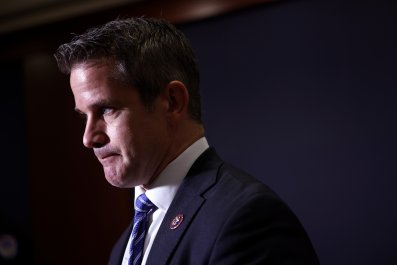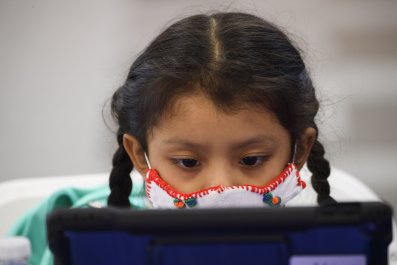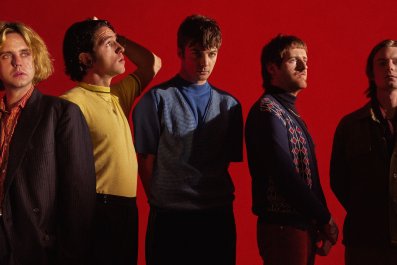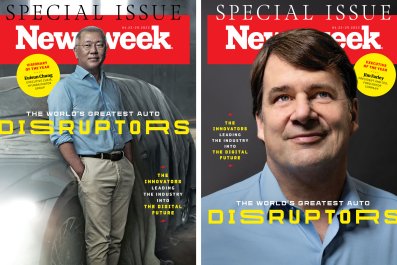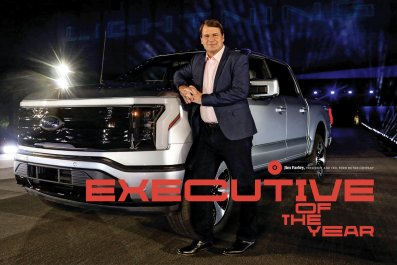
Last October, Newsweek, along with my firm the Best Practice Institute, published our Most Loved Workplaces list that featured 100 companies—from small to large—that employees, well, loved working for.
This fall, we're doing it again. The goal is to provide employees—and job seekers—accurate information on whether or not workers genuinely love the businesses they're employed by. The list is also a great resource, we think, for bosses at management-challenged firms that hope to change their ways.
Leading up to the October issue, we plan to feature five CEOs whose companies appeared on the inaugural list—and explore what makes them such employee-friendly operations.
We start with Pamela Maynard, CEO of Seattle-based software consulting firm, Avanade, which was Number 31 on last year's list.
Why is all this important? For one thing, it's difficult to recruit and retain top-tier employees in such an uncertain work environment that includes post-COVID rules (Work at home? Work at the office? A combination of the two?) and a very tight labor market. Making sure your employees are happy also translates to the bottom line. According to Harvard Business Review research, the stocks of companies with engaged employees outperform the stock market by 5 percent to 7 percent a year.
"When our people feel loved, when they feel a sense of purpose, when they feel they can be authentic and they belong, there's nothing—I truly believe there is nothing—that we can't accomplish as a business," says Maynard.
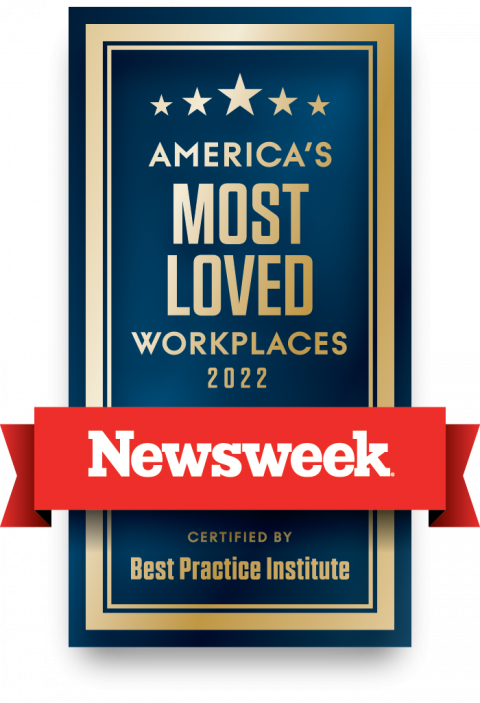
So how do you create a Most Loved Workplace? I asked Maynard, who oversees 50,000 employees. She said it boils down to three key things:
Unite Your Organization Around a Common Objective
One of the first things Maynard did when joining Avanade in 2019 was solidify the company's purpose.
"Our people told us really loudly that they want to know that what they are doing for our clients is making a difference in the world...and it isn't just about bottom-line results," Maynard told me. "They wanted to know that they were having a real human impact. And it's that purpose that inspires us to look beyond the technology and at the human impact."
How did she do that?
For one thing, Maynard and Avanade started working with the National Health Service, UNICEF and the World Health Organization to address critical issues like ventilator supply for COVID patients, fundraising and expanded health care data access. She also removed a volunteer hours cap so employees could work more in their communities.
Maynard also hosted town hall presentations to reassure workers that their well-being was a priority. Plus, she decided to ease up on project timelines so company consultants, during the pandemic, could adjust to disruptions in their home and work lives.
Create a Culture of Innovation
"Having an innovative culture is empowering and extremely attractive to employees," says Maynard. "They love having a purpose for coming to work—especially when it is creating the next generation of technologies."
Some examples: Avanade runs a "Global Innovation Contest" where teams, in partnership with clients, face off. In 2021, the company rolled out its "School of Innovation" for employees, companies and research centers. "Makeathons" in Europe help employees solve "keeping them up at night" business problems by tapping into talent in multiple offices. Avanade also offers code competitions and "geek allowances" are doled out to employees to make sure they are up on the latest tech.
"I don't think I would get much of an argument that in today's world there is only one speed: fast," Maynard says. "We've seen years' worth of digital transformation squeezed into months, and it's changed the way we and our clients want and need to innovate."
She adds: "The reality for our clients—and for all of us, really—is that what worked before won't necessarily take us where we need to go in the future."
Diversity and Inclusion
Avanade's people-first culture is reflected in its external partnerships with organizations such as UNICEF. But how do they demonstrate that commitment internally?
When George Floyd was murdered in May of 2020, Avanade hosted a series of employee-led discussions around systemic racism and discrimination that attracted over 700 of their employees. On the day of Floyd's funeral, Avanade employees had the day off to reflect and grieve.
Avanade also focuses on its hiring process. "The technology industry has really struggled to attract more women into STEM careers, more diverse talent into careers in technology," Maynard says. "As one of few Black CEOs in the industry, I really do feel a personal responsibility to leave the industry in a much more inclusive and diverse way than I found it."
Maynard made it a priority to build an inclusive and diverse team that, she told me, "Starts with gender and race, but goes way beyond that."
Avanade hired a Chief Diversity & Inclusion Officer, who helped support numerous employee networks, and created leadership and development programs. The company also changed its talent acquisition process with the goal of removing bias.
"Leaders," says Maynard, "have a responsibility to assure our teams that they know and feel they belong and what they do really matters."
Louis Carter is founder and CEO of the Best Practice Institute and author of more than 10 leadership/management books including In Great Company (McGraw Hill, 2019). See Lou's full interview with Pamela Maynard here.




